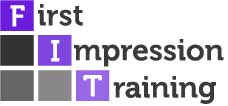Effective communication is a critical skill, for both business AND life.
If only we’d all mastered those 4 key communication skills of READING, WRITING, SPEAKING & LISTENING when we were taught them at an early age, we’d have all been assured of developing superior human relationships in later life, agreed?
It would feel easy to express ourselves clearly; relate to others; clarify our thoughts, feelings & opinions; demonstrate empathy and appear both interested in, and interesting to, others!
So, how come the majority of we human beings have a looooong way to go and a lot still to learn when it comes to communicating effectively, in order achieve the win-win – to both understand and be understood?
With the exception of the skill of LISTENING, those fundamental communication skills taught in primary education become passive skills as we get older – we move into auto-pilot and we READ or WRITE or SPEAK without conscious effort of any kind. We communicate without any real thought (or desire) to achieve anything other than a sense of self-satisfaction that we’ve ‘made our point’.
Yet we’re being told today that Leaders MUST improve their ability to communicate effectively with their followers, if we’re going to survive and thrive in this New Normal post-pandemic way of working & living.
Why? Because we’ve all had some time and space to re-evaluate and re-prioritise what’s truly important to us and we’re starting to gather some ‘oomph’ and impetus in letting others know what those wants are i.e. communicate our thoughts and feelings and views and opinions in a way we’ve never felt so confident doing before now.
This appears to be what’s at the centre of The Great Resignation hot topic of the moment, where employees are starting to TALK about their thoughts and feelings about working life and questioning the way they’re working, the why they’re working and the how they might make work more mutually satisfying for themselves and their employer – and this level of communication, in its open, honest and transparent fashion, is a new phenomenon for many employees AND employers.
Leaders will have to brush up on their communication skills, if they’re going to stand any chance of understanding the wants and needs of their staff in this post-covid work arena – they’ll have to learn to interpret those needs and respond to them appropriately in order to ensure the win-win for both the organisation and its people.
Perhaps there’ll be a whole set of NEW skills that will need to be acquired, in order for us all to truly understand and interpret each other’s communication effectively as we move through this New Normal, so that we ensure we each understand and feel understood – at both work and play?
What we DO know however, is that those basic characteristics of the effective communicator will remain unchanged, forever key ingredients in the recipe of successful communication:
- Empathy
- Compassion
- Trust
- Flexibility
- Non-judgement
- Inspiration
- Patience
- Integrity
- Responsibility
- Authenticity
Emotional Intelligence (EQ) is the new kid on the business block and that’s probably the case because, whether we’re a leader or a follower, we each need to become more aware and sensitive to other peoples’ model of the world now – focus more closely on how to achieve the win-win and it will require a degree of emotional intelligence to get us there.
Life is never going to be the same again and in many cases, that’ll be a good thing. What will remain is the human struggle to interpret each others’ communication, so that we each feel understood.
The NLP presupposition “the meaning of the communication is the one you get” is one worth thinking about! If you’re not getting the answer you’re looking for from the person you’re communicating with, then maybe you haven’t communicated your message in a way that the receiver understands and therefore, it’s all YOUR fault!
I think American economist, Alan Greenspan, got it spot on when he said: “I know you think you understand what you thought I said, but I’m not sure you realise that what you heard is not what I meant”
It is OUR responsibility to ensure we communicate in a way that our receiver can understand – even more so now, as we all begin to feel so much freer to communicate our wants and needs and desires, both for our working life and our personal one.
On a slightly lighter note, misinterpreting or mistranslating something someone has said CAN be extremely funny and a really good ice breaker in the communication scenario – as in the context of a hotel sign in a foreign country, as this list denotes, which has been shared by translation service providers, Tongue Tied www.tongue-tied-nw.co.uk
Paris: “Please leave your values at the front desk”
Switzerland: “Our wines leave you nothing to hope for”
Norway: “Ladies are requested not to have children in the bar”
Vienna: “In case of fire, do your utmost to alarm the hotel porter”
Bucharest: “The lift is being fixed for the next day. During that time we regret that you will be unbearable”
Moscow: “If this is your first visit to the USSR, you are welcome to it”
Japan: “Guests are requested not to smoke or do other disgusting behaviours in bed”
Thailand: “Please do not bring solicitors into your room”
Nairobi: “Customers who find our waitresses rude ought to see the manager”
Acapulco: “The manager has personally passed all the water served here”
Until next time – stay safe and keep FIT!


















